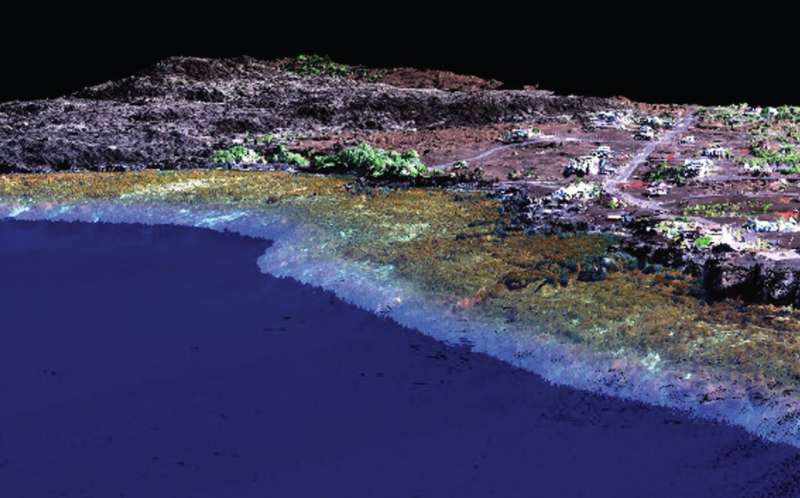#New study evaluates the advancement of ecology from a 2-D to 3-D science

“#New study evaluates the advancement of ecology from a 2-D to 3-D science”

A new study, published in Bioscience, considers the future of ecology, where technological advancement towards a multidimensional science will continue to fundamentally shift the way we view, explore, and conceptualize the natural world.
The study, co-led by Greg Asner, Director of the Arizona State University Center for Global Discovery and Conservation Science, in collaboration with Auburn University, the Oxford Seascape Ecology Lab, and other partners, demonstrates how the integration of remotely sensed 3-D information holds great potential to provide new ecological insights on land and in the oceans.
Scientific research into 3-D digital applications in ecology has grown in the last decade. Landscape and seascape ecologists can now critically frame 3-D ecological questions that have been challenging to answer across broad study areas—until recently. Advances in high-resolution remote sensing systems and data processing are allowing us to model the complex surface of the Earth, both above and below water, with greater detail and accuracy than ever before.
Future research applications in the marine environment should focus on addressing the challenges associated with integrating dynamic oceanographic information into maps capable of capturing 3-D variability in the environment over time.
“3-D-capable data sources have wide-ranging ecological applications and help in estimating carbon sequestration, quantifying habitat structure, mapping ecosystem services, and measuring and modeling consequences of climate change,” said Asner.
As landscape and seascape ecology looks toward the future, the study notes a need for a continued progression toward a 3-D science that will shift the way ecological patterns and processes are conceptualized. The paper provides key examples of 3-D data application in terrestrial and marine environments to illustrate how state-of-the-art advances in ecology have been achieved through novel data fusion, spatial analysis, and visualization.
“This article highlights the unprecedented opportunity for understanding 3-D ecological dynamics and human impacts on land and in the oceans, with a view to better inform management decisions,” said Lisa Wedding, co-author and Associate Professor at the University of Oxford.
As a result of this 3-D approach, natural resource management may support the development of conservation and management plans and shift the way that policymakers evaluate current and future regulations in a dynamic environment.
Employing 3-D coral reef remote sensing to predict fish biomass
Christopher A Lepczyk et al. Advancing Landscape and Seascape Ecology from a 2D to a 3D Science. BioScience, doi.org/10.1093/biosci/biab001
Citation:
New study evaluates the advancement of ecology from a 2-D to 3-D science (2021, February 17)
retrieved 18 February 2021
from https://phys.org/news/2021-02-advancement-ecology-d-science.html
This document is subject to copyright. Apart from any fair dealing for the purpose of private study or research, no
part may be reproduced without the written permission. The content is provided for information purposes only.
If you liked the article, do not forget to share it with your friends. Follow us on Google News too, click on the star and choose us from your favorites.
For forums sites go to Forum.BuradaBiliyorum.Com
If you want to read more Like this articles, you can visit our Science category.



